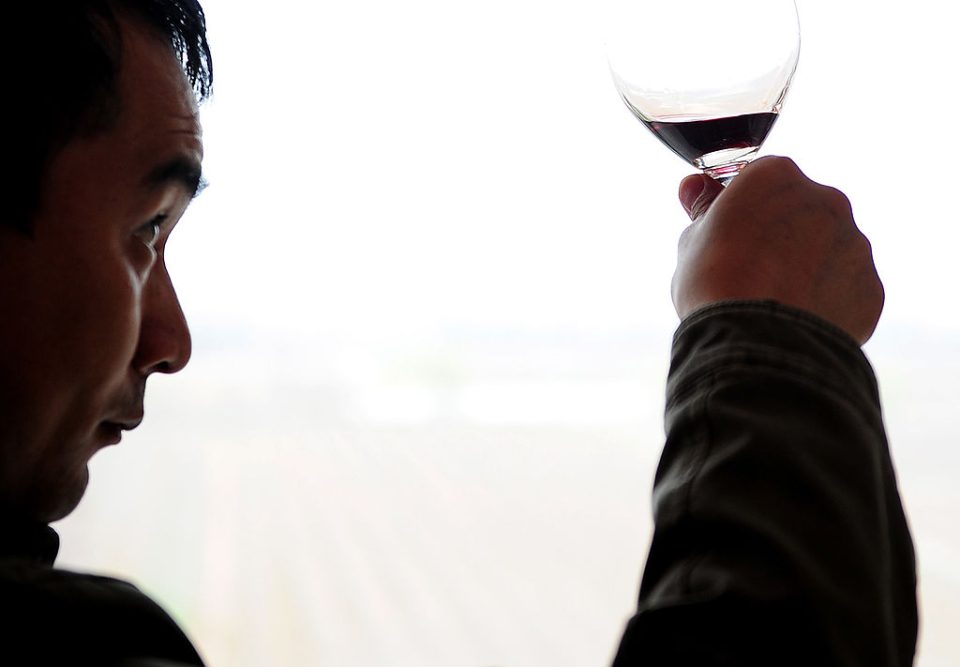China announced it would impose retaliatory import restrictions on European medical devices and anti-dumping duties on European brandy.
The European Commission reacted angrily at the import restrictions, accusing the Chinese of discriminatory measures and ignoring international obligations.
It said it saw “a worrying pattern of China abusing trade defence instruments: Starting and conducting investigations on the basis of questionable allegations and insufficient evidence”.
On July 6, China’s finance ministry said it was restricting government purchases of medical devices from the European Union that exceeded 45 million yuan (€5.35 million).
If the purchase of imported products was deemed necessary after completing the relevant legal procedures, the ministry stated that EU enterprises should be excluded from participation. That was except for EU-funded enterprises that operated within China.
For non-EU enterprises participating in government procurement projects, the value of medical devices imported from the bloc must not exceed 50 per cent of the total contract amount.
Beijing did announce an exception for procurement projects that could only be met by medical devices imported from the EU and already approved projects.
In June, the European Union announced its decision to exclude Chinese companies from participating in EU public tenders for medical devices valued at €60 billion or more annually. This measure followed findings that EU firms were not granted equitable access in China.
A spokesperson for China’s commerce ministry highlighted that, on June 20, 2025, the European Commission implemented measures that restricted Chinese enterprises and products from engaging in the EU’s public procurement of medical devices.
The spokesperson said these measures continued to erect barriers for Chinese firms in public procurement.
“Regrettably, despite China’s goodwill and sincerity, the EU has insisted on going its own way, taking restrictive measures and building new protectionist barriers,” the commerce ministry said.
“Therefore, China has no choice but to adopt reciprocal restrictive measures.”
In a reaction to Brussels Signal, Olof Gill, EC spokesman for trade, said the Commission regretted the Chinese decision to impose measures on medical devices imported from the EU.
“We remind you that the EU’s fact and evidence-based IPI measure was triggered by longstanding discriminatory measures and practices that affected the access of EU medical device producers and EU-made medical devices to the public procurement market in China,” he said.
“In addition, our measure was carefully calibrated to level the playing field and respond proportionately to existing procurement barriers in China.
“The EU measure did not even fully mirror the procurement barriers in China and their negative impact on the EU industry; it restricted access for Chinese operators and medical devices originating from China only to contracts equal to or above €5 million.
“The EU measure is also consistent with the EU’s international obligations, including under the WTO framework. We stress that it was only imposed after attempts via consultations and regular dialogue did not lead to a satisfactory solution,” Gill added.
“China rather decided to escalate this matter further by introducing the new restrictions, instead of coming forward with concrete proposals that would ensure the reciprocal, open access to public procurement markets the EU seeks. The Commission expressed on multiple occasions its clear willingness to seek a mutually satisfactory solution and stands ready to continue dialogue with China.
“We will now examine closely the nature and the potential impact of the announced Chinese measures before deciding on next steps,” he concluded.
Prior to launching the medical import restrictions, Beijing already announced on July 4 that it would impose duties on European brandy of up to 34.9 per cent, in particular on French Cognac.
China’s commerce ministry said that day its tariff commission had “decided to impose anti-dumping duties on imports of relevant brandy originating in the EU from July 5, 2025”.
“The investigating authority finally ruled that there was dumping of relevant brandy imported from the EU,” it said in a statement.
“The domestic relevant brandy industry was threatened with substantial damages, and there was a causal relationship between the dumping and that threat,” it said, according to AFP.
Almost all EU brandy is cognac produced in France, with exports to China valued at €1.4 billion annually.
According to the Chinese commerce ministry, the new levies would target brandy in containers of less than 200 litres. The tax rates would vary among producers: Some 34.9 per cent for Jas Hennessy, 34.3 per cent for Remy Martin and 27.7 per cent for Martell.
The ministry let the largest producers including Pernod Ricard, LVMH and Remy Cointreau, off the hook, provided they sold at a minimum price, which China has not yet disclosed.
France’s umbrella cognac makers association BNIC confirmed that several market players had agreed to price increases in China to avoid anti-dumping taxes.
“In order to avoid seeing their presence in China completely undermined and to be able to plan their activities in China with greater stability, some of our companies have signed ‘minimum price commitments,” the association said in a press release.
BNIC reiterated its call on the French Government and the European Commission to reach a political agreement as soon as possible with the Chinese authorities to return to a situation without anti-dumping duties.
“This decision marks the end of the anti-dumping investigation, but not the end of our action to ensure that all our exporters regain unhindered access to the Chinese market as quickly as possible”, said Florent Morillon, president of the BNIC.
“In the meantime, the minimum price undertaking scheme offers more tolerable conditions for our companies than the definitive anti-dumping duties announced, even if the market access they allow remains degraded.”
Representative industry organisation Spirits Europe said it regretted the Chinese duties.
“This decision comes despite the substantial evidence submitted by the EU spirits sector over the last 18 months, clearly demonstrating the absence of any dumping practices on the Chinese market.
“While the final average duty is slightly lower than the provisional rate applied since 11 October 2024, the measures will still pose a significant barrier to legitimate trade,” the organisation said.
China was willing to work with the European Union to resist protectionism, the country’s economy tsar told the bloc’s trade chief, in an invitation to join forces in pushing back against mounting threats of trade tariffs from the US. https://t.co/oNYJVAipji
— Brussels Signal (@brusselssignal) March 28, 2025
Likewise, EC trade spokesman Olof Gill told Brussels Signal that the EC “regrets China’s decision to impose definitive anti-dumping measures on imports of EU Brandy to China”.
“The Commission has followed the investigation very closely from the beginning, and our view has been firm and unchanging: China’s measures are unfair and unjustified. They are inconsistent with the applicable international rules and are thus unfounded.
“The Commission has accordingly intervened on a number of occasions to defend and support EU industry, expressing its growing concerns, and raising objections concerning the clear shortcomings in the conduct of the investigation.
“None of the concerns identified at the provisional stage and raised in the EU consultation request at the WTO last November were addressed.
“Regrettably, these measures are also part of a worrying pattern of China abusing trade defence instruments: starting and conducting investigations on the basis of questionable allegations and insufficient evidence, within a short period of time.”
Gill said The EU is studying the measures and will assess next steps to protect its industry and economic interests.





